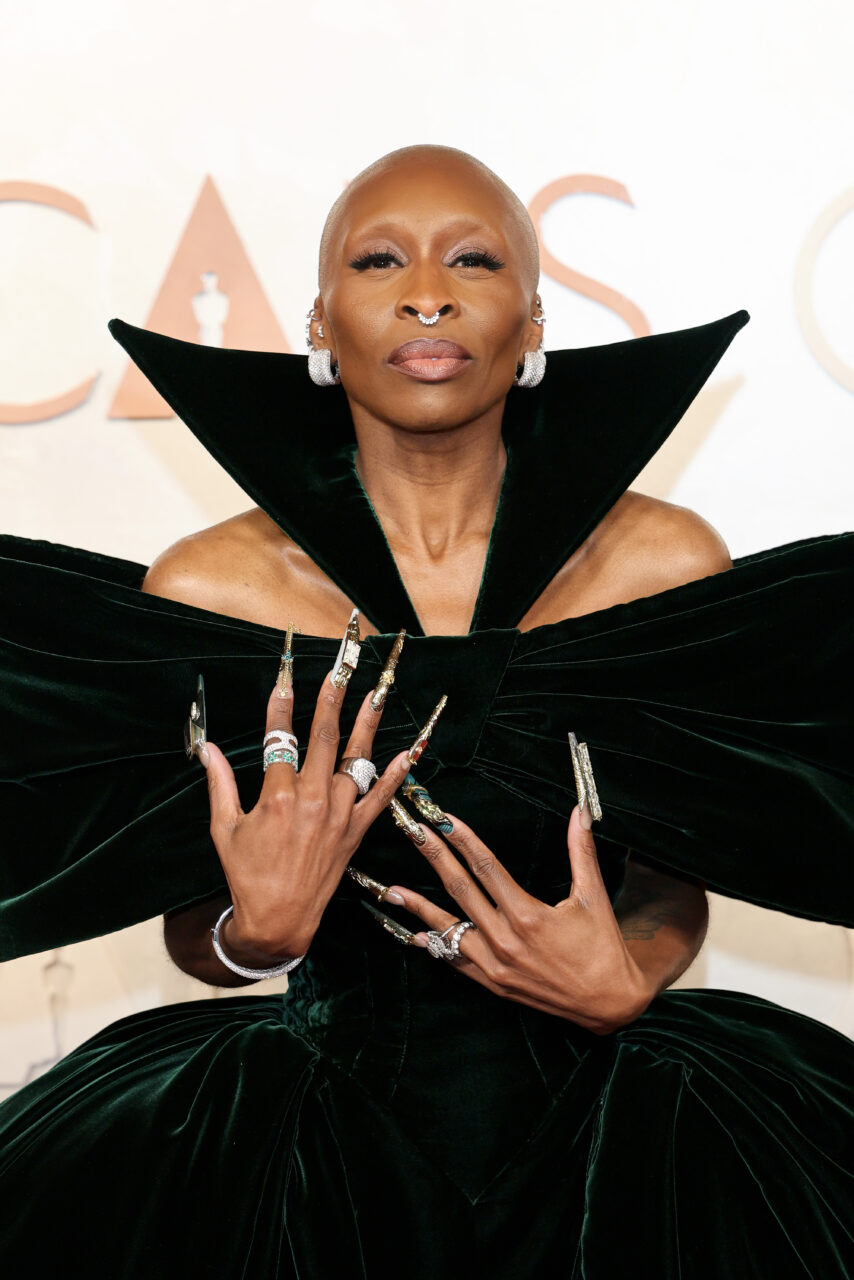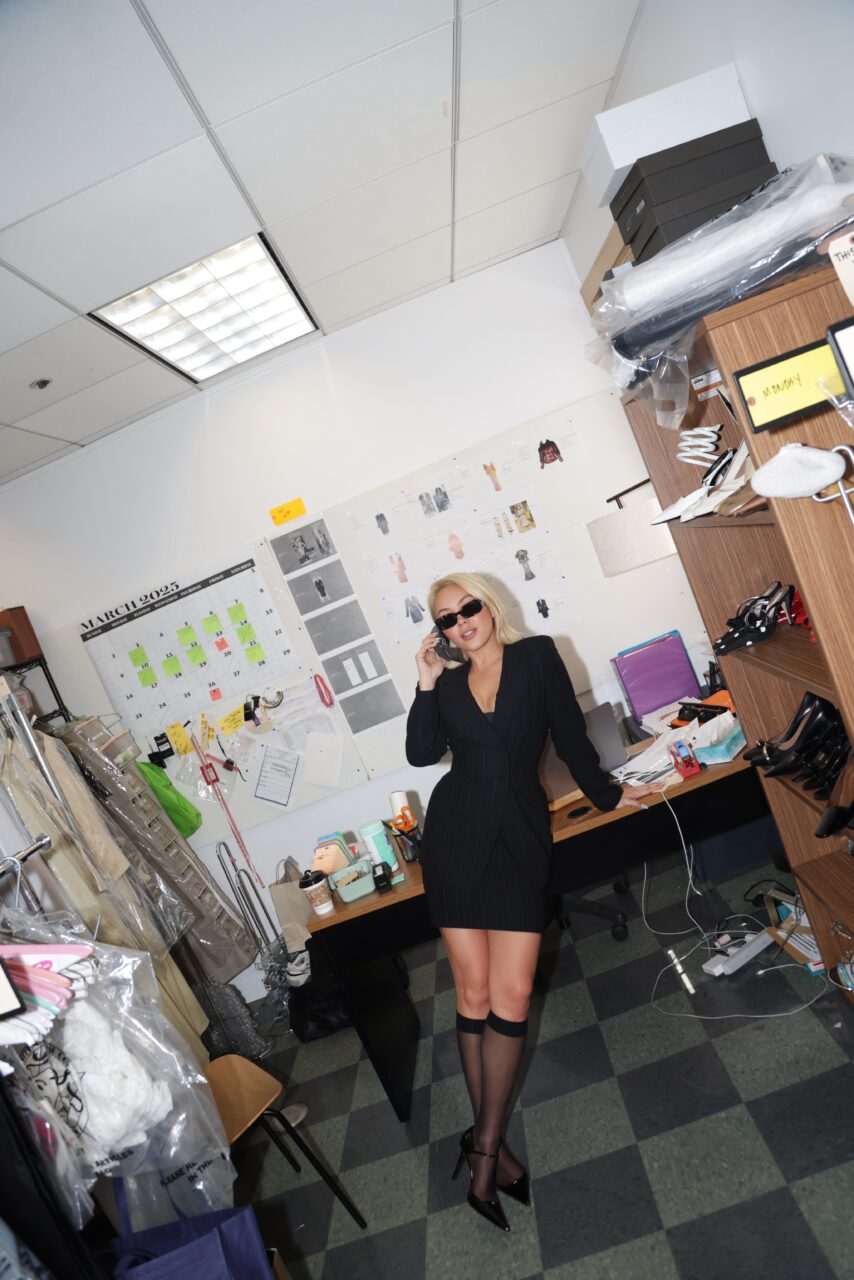It’s no secret that the fashion industry is one of the biggest culprits behind the staggering levels of carbon emissions and waste impacting our planet. It is the second-largest consumer of water globally and accounts for roughly 10% of all carbon emissions. Each year, 92 million tonnes of textile waste are discarded, with only 1% recycled into new garments. While fingers are quick to be pointed at the fast fashion industry, luxury fashion is not exempt from this problem. Some progress has been made through initiatives such as clothing recycling programs and free tailoring or repair services, but these efforts alone are not enough to address the industry’s environmental challenges. A select few in the industry, however, have taken mindful strides ahead of others, paving the way for a more sustainable fashion future through innovation and technology.
Ganni
Danish cult classic GANNI has been working with LA-based materials innovator Ambercyle since 2021, and their partnership has now reached a major milestone with a four-year off-take agreement. The deal is part of Ganni’s GAMEPLAN 2.0 strategy which is a roadmap for the company’s sustainability vision of innovation and responsibility. Part of this plan is their Fabrics of the Future Initiative, which was launched in 2019 to champion new circular materials.
As one of the earliest partners in the Fabrics of the Future Initiative, Ambercycle debuted its first collaboration with GANNI in 2023: a biker jersey made with 30% cycora®. The success of the piece eventually led to Ganni’s first full cycora®-based collection unveiled at 2025 Paris Fashion Week.
The technology focuses on circularity. As opposed to other recycled polyesters made of plastic bottles, cycora® turns old textiles into new textiles. This not only diverts a lot of waste from landfills, but cuts down on virgin polyester use which requires fossil fuels to make.
The agreement underscores Ganni’s commitment to an innovative and sustainable future in fashion and solidifies its role as a spearhead of this in the industry.
Puma
AC-Milan Football Puma RE:FIBRE jersey
Photo: @pumahk via Instagram
More recently, Puma and RE&UP have announced a collaboration to scale RE&UP’s fully circular textile solution. This collaboration aims to reduce reliance on both virgin and bottle-recycled polyester. Puma has set an ambitious goal to have 30% of their polyester be made from textile-to-texile recycling by 2030, a significant step toward circularity. Together, the two companies will be working together to introduce their recycling program RE:FIBRE to the Americas, expanding access to innovative circular solutions.
Using textile waste from factory off-cuts, defects, and pre-loved clothes, RE&UP is able to create new-gen polyester and new-gen cotton fabrics. They established themselves in the Netherlands, and have now expanded to Turkey. Their work with PUMA will bring their industry-first technology to yet another continent. As part of the RE:FIBRE program, PUMA’s football clubs will incorporate RE&UP’s technology into their jerseys demonstrating cross-industry demand for more sustainable practices.
Stella McCartney
Long time environmentalist Stella McCartney has been making waves in sustainable fashion since her brand launched in 2001. Most recently, McCartney unveiled her “Future of Fashion” installation in London just in time for Earth Day this April. The exhibition celebrated two decades of innovation, spotlighting the sustainable and cruelty-free materials that have defined her collections.

Stella McCartney and King Charles II at the Future of Fashion exhibition in London
Photo: Owen Humphreys-WPA Pool via Getty Images
One standout material from the exhibition was UPPEAL™, a versatile, waterproof leather alternative crafted from apple waste left over from juice and jam production in Northern Italy. It is made by dehydrating and grounding up the waste into powder, which is then used as an alternative to fossil fuels and combined with other materials to create leather. McCartney embosses the leather with different animal-skin patterns. This innovative material can be found in a variety of her products, notably the iconic Frayme bag.
Last month, she also released limited edition Falabella Bags as part of the Generation Falabella capsule wardrobe. Fronted by rising stars Role Model, Odessa A’zion, and Quenlin Blackwell, the collection pays tribute to Falabella’s rock ‘n’ roll heritage.
Ecco Leather
Originally a shoe wear brand founded in 1963 in Denmark, Ecco leather is now the world’s only design-led tannery, constantly innovating ways to help the leather industry become more sustainable. As opposed to the water-intensive industry standard, their own DritanTM tanning process saves 20 litres of water per hide and does not create any solid waste or waste water. They also spin their leather shavings into a unique fibre RESPIN through a collaboration with textiles innovator Spinnova, further reducing waste. Although they do use real leather, the company takes byproducts from the dairy and meat industry, to stop hides from going into landfills.
The brand continues to release their own shoe wear as well as collaborations with different designers. Most recently, they worked with British menswear designer Craig Green as part of their collaborative project Ecco.Kollecktive. The company also regularly hosts workshops that offer designers hands-on experience with their innovative materials and production methods. These workshops provide emerging talent with the tools to experiment and innovate freely, without the pressure of delivering commercial success, fostering a new generation of sustainable design.
Karl Lagerfeld
Looking beyond sustainable materials, Karl Lagerfeld recently announced their partnership with French tech start-up Fairly Made® to enhance their supply chain transparency. Launched in April, the technology enables customers to trace the production journey of their purchases – from raw materials to final delivery – while ensuring compliance with sustainability standards.
Fairly Made co-founders Laure Betsch and Camille Le Gal
Photo: @fairly_made via Instagram
The partnership is part of the Karl Cares initiative, which focuses on people, planet and partners. The company aims to have net zero emissions by 2050 and use more sustainable materials. Fairly Made® will help by tracing the environmental impacts of every product.
The women-led sustainable fashion startup was founded in 2018 to enable brands to track their supply chains, compelling them to comply with regulations and giving consumers the confidence that their products are truly sustainable. It is a data-driven solution to sustainability in fashion. The company recently raised $16 million in funding, solidifying its position as a leader in supply chain innovation. Karl Lagerfeld joins the list of established brands or groups that Fairly Made® has already partnered with, including LVMH, Versace, and Paul Smith, just to name a few.
Editor
Natasha YaoCredit
Lead Image: @cycora.la via Instagram
















